The US election results on 4 November, no matter the outcome, will mean continued changes for the transatlantic partnership. What implications can we expect for the future of trade, how will the US and Europe cooperate on foreign policy issues, and what impact will a Biden or Trump victory have on the future of security cooperation and the COVID-19 coordination?
During this webinar, panelists will share their assessment of how Americans currently perceive their German and European partners across the Atlantic – and vice versa. They will analyse what larger trends can be deduced from the current state of transatlantic relations and possible best responses the EU could give to future policy changes. Besides having a closer look on the economic trends, another focus of this webinar will be security relations and the impact of the elections on the NATO security cooperation.
We look forward to you joining us for the second event on the US elections here at the Hertie School with experts from our faculty and partners.
Panelists
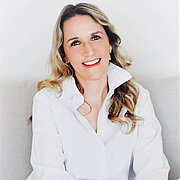
Marina Henke is Professor of International Relations at the Hertie School and Director of the Centre for International Security. She researches and publishes on military interventions, peacekeeping, and European security and defense policy. Before joining the Hertie School, she was an Assistant Professor at Northwestern University, specializing in international relations and at Princeton University where she was a Lecturer and Postdoctoral Research Associate at the Woodrow Wilson School of Public and International Affairs. Henke holds a PhD in Politics and Public Policy from Princeton University, a Double-MS in Development Studies and International Political Economy from Sciences Po Paris and the London School of Economics, and a BA in Economics, Politics and Latin American Studies from Sciences Po Paris.
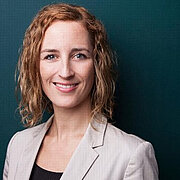
Nicole Koenig is Deputy Director at the Jacques Delors Centre. Her areas of expertise include EU foreign and security policy, institutional questions, and migration policy. She is member of the International Advisory Board of the journal The International Spectator. From September 2019 to June 2020 she is a non-resident ‘Europe’s Futures Fellow’ with the Institute for Human Sciences in Vienna. Nicole holds a PhD in Politics and International Relations from the Universities of Cologne and Edinburgh (co-tutelle). She holds a Master’s degree in Politics and Management from the University of Constance and one in EU International Relations and Diplomacy from the College of Europe in Bruges.
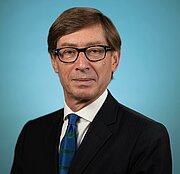
Peter Wittig recently retired from the German Diplomatic Service. He is now working as Senior Advisor Global Affairs for the Schaeffler Group. He is also a Fisher Fellow at the Harvard Kennedy School. Wittig served in Spain, Lebanon, Cyprus and at headquarters in the Cabinet of two Foreign Ministers; most recently he served as the German Ambassador to the United Nations in New York (2009 - 2014) representing his country in the Security Council, to the United States (2014 - 2018) and to the United Kingdom (2018 - 2020). Before joining the Foreign Service he studied history, political science and law at the Universities of Bonn, Freiburg, Canterbury and Oxford.
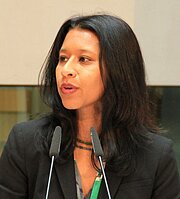
Sudha David-Wilp is a senior transatlantic fellow and deputy director of the Berlin office of the German Marshall Fund (GMF). She joined GMF’s Berlin office in September 2011. She oversees GMF’s Congress-Bundestag Forum, a joint program with the Robert Bosch Foundation, and engages with the media as an expert on German–US relations, and covers transatlantic digital topics. Before moving to Berlin, she was the director of international programs at the US Association of Former Members of Congress in Washington, DC for nearly eight years. David-Wilp received her master’s in international relations from Columbia University. She received her bachelor’s from Johns Hopkins University, with a major in international relations and a minor in writing seminars.
Chair
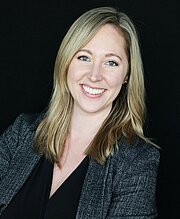
Cristina Gonzalez is POLITICO Europe’s lobbying reporter, author of EU Influence and producer of the podcast EU Confidential. She previously worked for Cox Media Group as a senior producer for local and nationally-syndicated radio in the US. She was a visiting Robert Bosch Fellow (2015-2016) at SPIEGEL Online, ZDF Morgenmagazin and the American Academy in Berlin, and worked in the Hertie School’s communications department (2016-2018). Her reporting, analysis and producing has been published in leading press and news agencies in Germany and the EU. Cristina holds a master's degree in Communication Studies from Vrije Universiteit Brussel (VUB) and holds a Bachelor in Journalism and Political Science from New York University (NYU).



